People often ask whether I am concerned about inflation, deflation, peak oil, or a global financial meltdown. My answer is as follows.
The future is something to be created, rather than feared. Allocating our time, networks, and resources to deal with a variety of high-risk scenarios frees us to become proactive and to build positive futures instead of negative ones. I like to understand what these scenarios mean in terms of managing risk and to know how we can succeed within all possible futures.
But my business is investment, not prophecy.
The risk scenario I weight most heavily is not listed above. I call it the “Slow Burn.”
The “slow burn” is a political culture and economy managed through principles of economic warfare in which insiders systematically protect themselves and centralize control and ownership of resources by using:
- Central banks
- Currency and lending systems
- Taxation
- Regulatory and enforcement policies
- Controlled media and entertainment
Insiders use these means to drain the time, resources, and life of people on the outside. Although insider cartels compete and jockey for power, they are able to settle their squabbles by increasing control and draining everyone and everything else. This is why the bubble economy continues to deplete the real economy. It is likely the reason why Dick Cheney said, “Deficits don’t matter.”
In a slow burn scenario, it is possible to prop up trillions of dollars in financial asset values by systematically arranging subsidies that ultimately liquidate life. This is what “managing” markets really means: de-populating people and places to maintain phony values created and necessitated by derivative bets.
The reason why it is difficult for sophisticated financial people to discern that a slow burn is taking place is because we have not yet collectively mastered the operational detail of how it is implemented. This is an extremely important subject.
One of the most important aspects of the Paulson Plan to re-engineer US financial regulation is the assertion of complete control of payment systems by the Federal Reserve and gaining access to the data of essentially any financial institution. Combined with 1) the ability to print money and 2) digital communication payment and surveillance technology (satellite), this will consolidate greater power into fewer hands than at any time in recorded history.
As Nicholas Negroponte said, “In a digital age, data about money is worth more than money.”








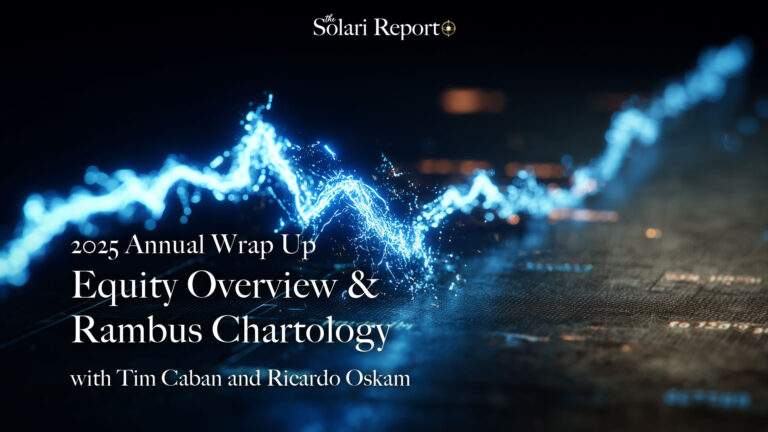
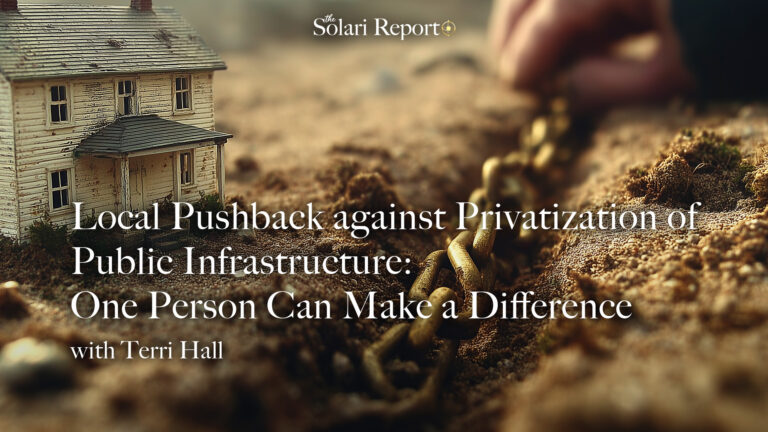
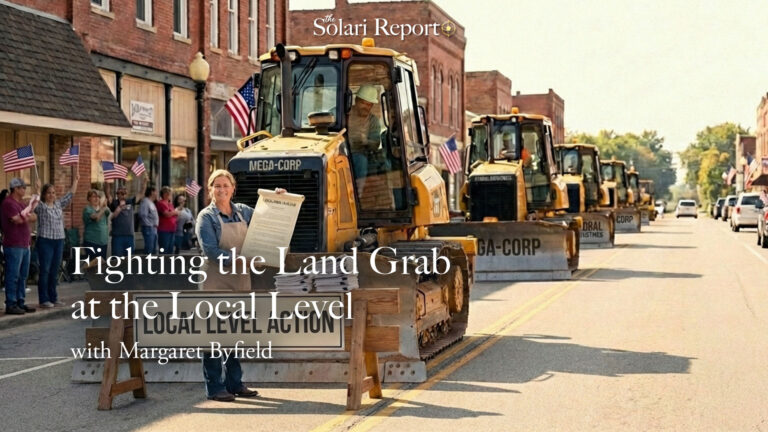

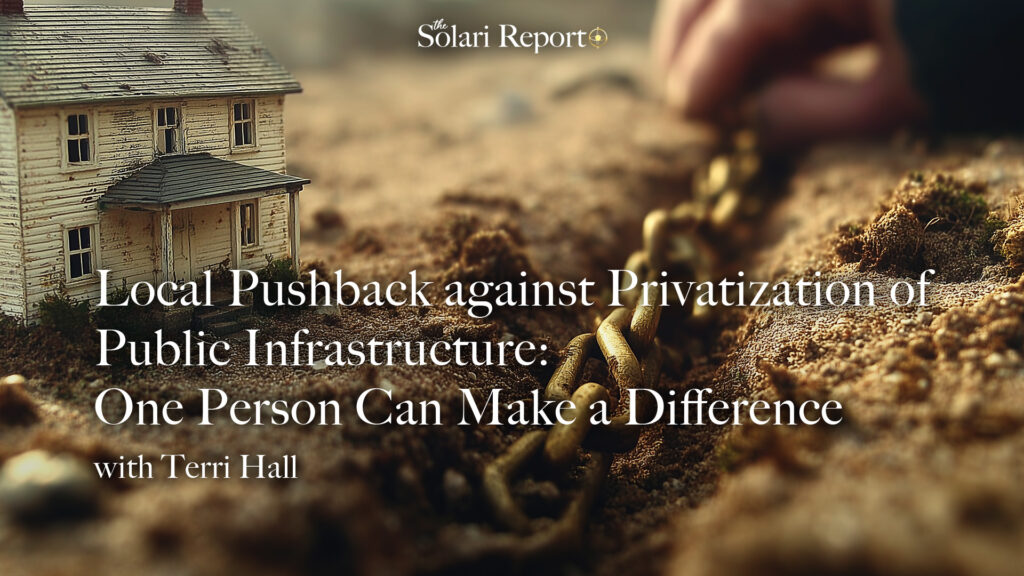
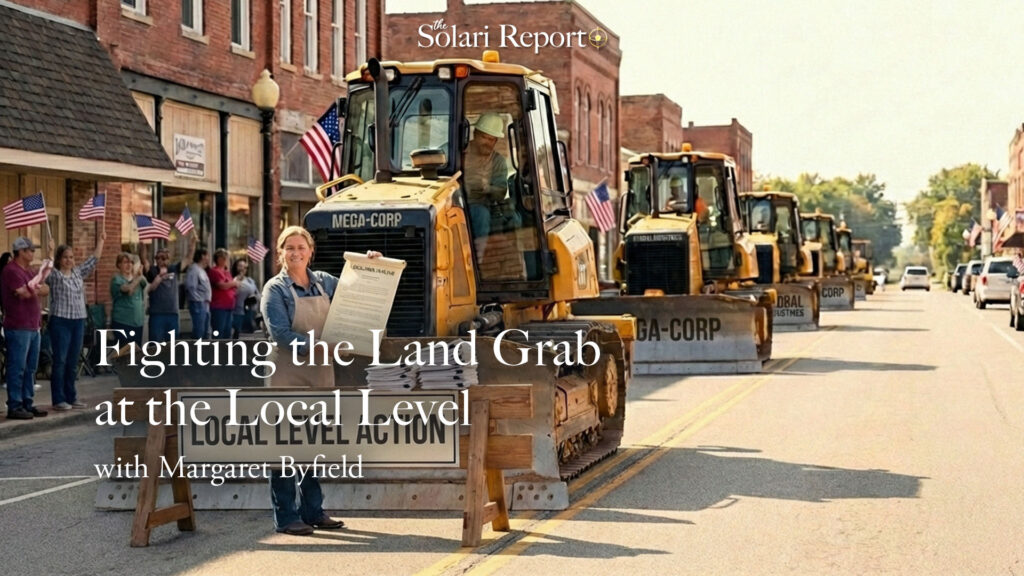
















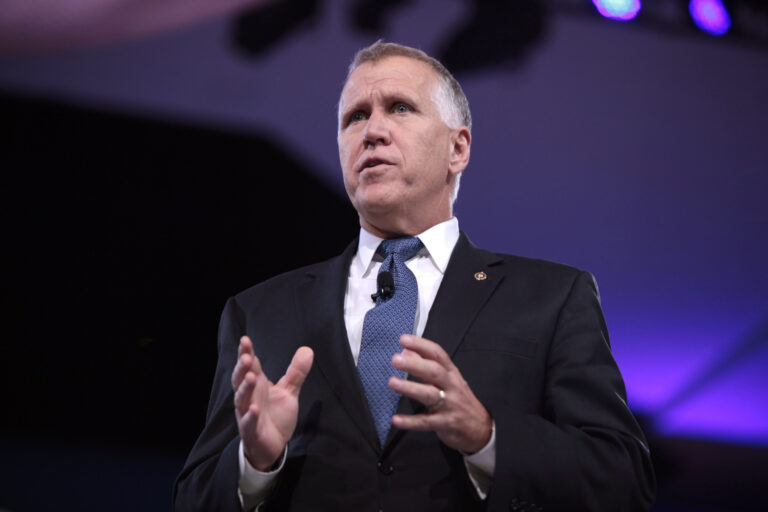




































































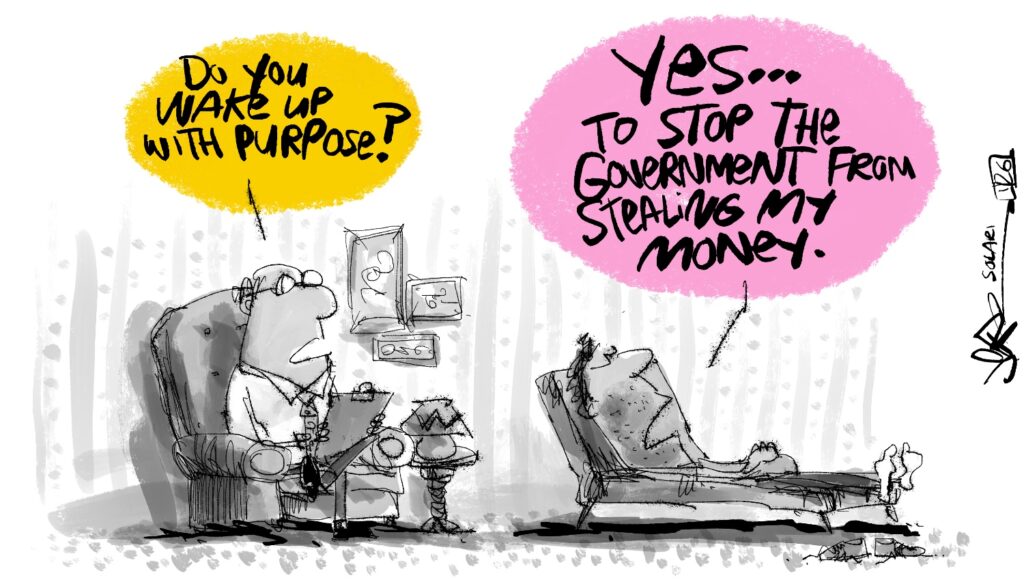





















Listening to your interview with Art Bell last night, one issue I don’t understand. You mentioned soccer moms who wanted to kick out the drug dealers from their neighborhood, and next thing they knew, the black helicopters were overhead. I’m not sure why that would happen. You mentioned a relationship between the neighborhood drug dealers to Tony Soprano to James Bond. Tell me it “ain’t” so!
Listening to your interview with Art Bell last night, one issue I don’t understand. You mentioned soccer moms who wanted to kick out the drug dealers from their neighborhood, and next thing they knew, the black helicopters were overhead. I’m not sure why that would happen. You mentioned a relationship between the neighborhood drug dealers to Tony Soprano to James Bond. Tell me it “ain’t” so!
Renee:
My recommendation is that you start with these two articles:
http://markinthepark.net/articles/scoop_narco_dummies.htm
http://www.dunwalke.com
I hope they are useful.
All the best,
Catherine
Renee:
My recommendation is that you start with these two articles:
http://markinthepark.net/articles/scoop_narco_dummies.htm
http://www.dunwalke.com
I hope they are useful.
All the best,
Catherine
You have opened my eyes!
You have opened my eyes!
One of the real quizzical things to me is that all these ‘assets’ accumulated not in producing, selling and buying ‘stuff, things, products’ but in ‘producing, buying and selling’ PAPERWORK done on the ‘puters of the world. That entire four or five hundred trillion in ‘derivatives’ debt is no more than you and I colluding to convince people to buy our insurance against being struck by lightening and then recruiting a bazillion others to chatter it up on the ‘right’ internettubes, boobtubes and certain thin air high society social networks. When ya think about it, all that debt could disappear at this moment and the knobs, gears, switches, arms, wheels and widgets running everyday life would just continue upon it’s merry way…weird.
Doubt Nothing Question Everything because nothing is simple and little is true.